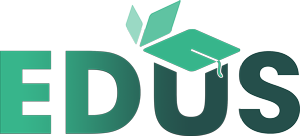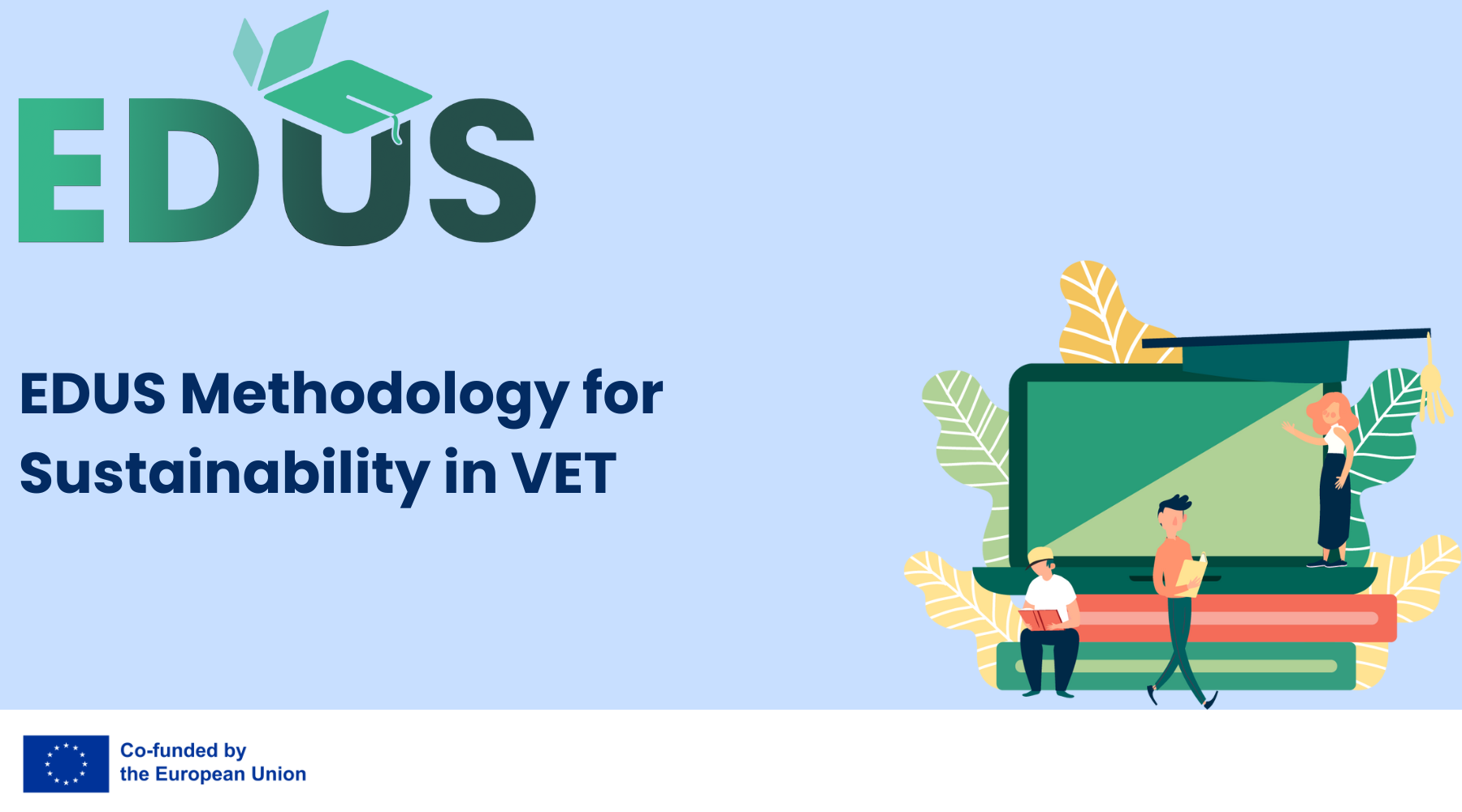
EDUS: Educating for Sustainable Development
10/29/2024 Carla Martinez
With a rising civil awareness of what the effects of climate change and social inequality mean for the global population, we need to pursue transformative change. A key strategy for this, is to include education for sustainable development (EDS) in educational curricula. EDS aims to equip future generations with the capabilities necessary to confront issues that impact both individuals and global well-being. EDUS, our Erasmus+ project, aims to train students in VET centres across Europe in sustainable entrepreneurship, while also guiding their teachers in sustainability education. The project was created to advance the Sustainable Development Goals (SDGs) and the objectives of the 2030 Agenda. EDUS aims to bridge the sustainability knowledge gap between educators and students by offering digital tools and resources that enhance curricula and encourage students to pursue sustainable careers.
What is Education for Sustainable Development?
Education for sustainable development (ESD) is a UNESCO initiative that enables people to make educated decisions and participate—either alone or collectively—in reshaping communities and protecting the environment. ESD is based on the 17 Sustainable Development Goals that all UN member states adopted in 2015. These SDGs cover a wide range of topics related to global socio-economic, environmental, and technological progress.
ESD looks to equip individuals of all ages with the information, expertise, beliefs, and abilities they need to tackle issues such as climate change, biodiversity loss, resource overconsumption, and inequality. Education for sustainable development focuses on cognitive skills to develop critical thinking and comprehension abilities through learning. It also fosters socio-emotional growth by building social skills, empathy and emotional intelligence. At its core, ESD endeavours to empower individuals by making them question their beliefs and societal standards, embrace sustainable principles and morals, and address practices that are not sustainable. GreenComp (a competence framework put forth through the EU Green Deal) coined the term sustainability competence:
«A sustainability competence empowers learners to embody sustainability values, and to embrace complex systems, in order to take or request action that restores and maintains ecosystem health and enhances justice, generating visions for sustainable futures.»
Why educate in sustainable development?
Cochran-Smith (1999) identified ‘‘social responsibility, social change, and social justice’ as key goals of education’. It is essential to tackle the consequences that environmental degradation, social inequality, and economic instability have, and will continue to have, on us. This was the driving forcebehind the SDGs, but these goals cannot be achieved without significant alterations in citizens’ actions and habits. This can only be done through education. In a world that is interdependent, unequal, unsustainable and digital, education for sustainable development benefits both the global community and individuals. Projects like EDUS have the potential to enact collective environmental and social improvement through the acts of individuals.
Education for sustainable development also prepares students for a reality they are not currently equipped to face. The abilities needed to thrive in the present day have changed, highlighting a disparity between the school curriculum and the essential skills for success in the workforce and society (González-Salamanca, Agudelo, & Salinas, 2020). Organisations like UNESCO or the OECD refer to these skills as 21st century skills. These capabilities encompass advanced digital skills, social comprehension and collaboration, and environmental conservation. All of these, while not strictly academic, are increasingly sought after by recruiters. Developing these skills also advances the position of students in the labour market.
How will EDUS educate in sustainable development?
GreenComp promotes 12 key competences across four areas: embodying sustainability values, embracing complexity in sustainability, envisioning sustainable futures and acting for sustainability. Mostly the focus is on critical thinking and agency for environmental change. EDUS will build on GreenComp’s competences and add sustainable skills that also address current market needs. Namely, it will address the digital and green transitions as interdependent in the progress toward sustainable development. It will do this by promoting sustainability competencies in VET programmes throughout Europe.
EDUS will provide VET trainers with a training methodology consisting of a competence framework, a training programme and a toolkit that can be used in their teaching to enhance sustainability competences. This will enhance awareness among educators and adult learning staff as they impart materials to their students. EDUS will foster learners’ knowledge and awareness of global issues, critical thinking and analytical skills, and action for positive social and political change, all while focusing on sustainability practices and the fight against climate change.
What are the next steps for our project?
Next month, on November 25th, our project partners will meet in Garðabær, Iceland. Together with the EDUS consortium, several VET trainers from the partner countries will take part in a series of workshops. These will be collaborative design processes to structure the project’s outcomes in alignment with the needs of its users and beneficiaries. It will be the first of a series of sessions where they will discuss ideas for the framework, methodology and tools created by EDUS.
We will keep you updated!







